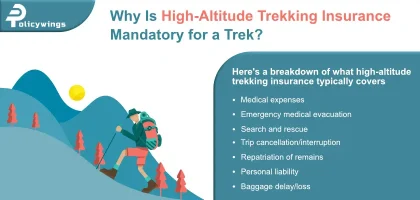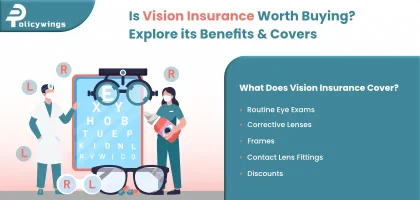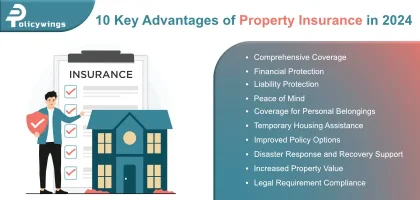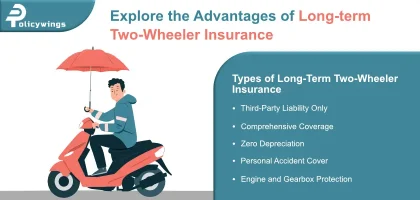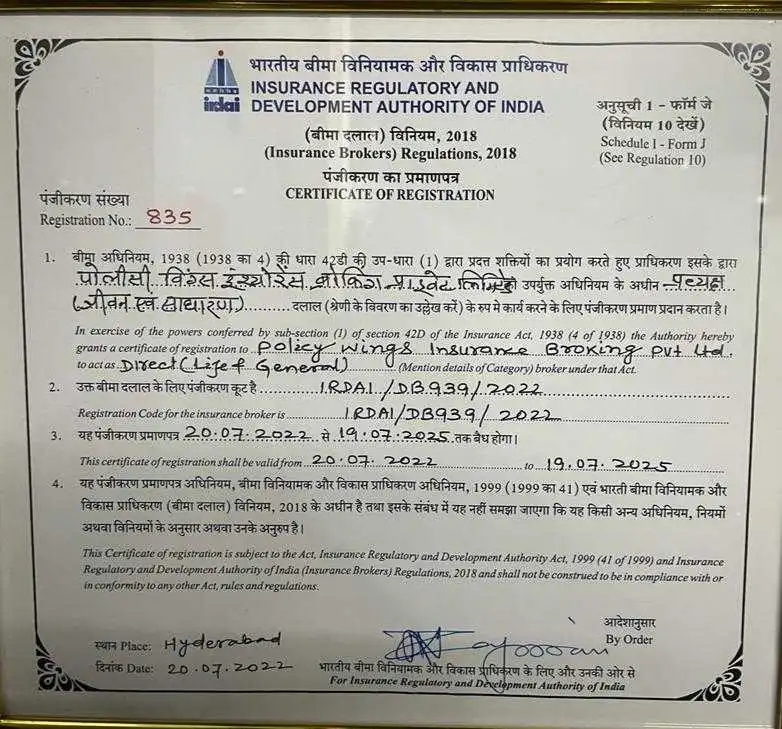
Decoding Your Policy
Decoding Your Policy
To decode and understand the various terms in your insurance policy, it’s helpful to have knowledge of the following key concepts:
Policy Coverage
Familiarize yourself with the types of coverage provided by your insurance policy. Common coverage types include term life coverage, vehicle accident coverage, third-party liability coverage, property coverage, medical expenses or payments coverage etc. Understand what each coverage entails and the specific limits and conditions associated with them.
Deductibles
Understand the concept of deductibles in your insurance policy. A deductible is the amount you are responsible for paying out of pocket before your insurance coverage kicks in. Familiarize yourself with the deductible amounts specified in your policy and how they apply to different types of claims. Many times, it is seen that having to pay a certain amount from one’s own pocket hits like a bolt from the blue to unsuspecting customers.
Limits of Liability
Insurance policies typically have limits of liability, which determine the maximum amount the insurer will pay for covered claims. It’s crucial to understand the limits of liability for each coverage type in your policy. This knowledge helps you assess whether your coverage adequately protects your assets and liabilities.
A common example is Cataract Surgery. Many Health policies put a cap on the amount that will be allowed to you and if one goes for a higher quality IOL (intra-ocular lens), chances are that a major portion of the claimed amount will not be passed by the insurer.
Endorsements or Riders
Pay attention to any endorsements or riders attached to your policy. These are additional provisions or modifications that can expand or restrict coverage. It’s important to review these carefully to understand any changes or enhancements to your policy.
Policy Conditions
Policy conditions outline the responsibilities and obligations of both the insured and the insurer. These conditions may include requirements for reporting claims, cooperating with investigations, mitigating damages, or other procedural aspects. Understanding the policy conditions ensures that you comply with your obligations as an insured and helps you navigate the claims process effectively.
Policy Renewal and Cancellation
Review the provisions regarding policy renewal and cancellation. Understand the renewal process, including any notice periods or requirements for maintaining continuous coverage. Similarly, be aware of the circumstances under which your insurer can cancel or non-renew your policy. For example, In case, you wish to port a policy like Health policy, you will have to apply within a certain time period from renewal.
Claim Procedures
One must familiarize oneself with the steps and procedures for filing a claim. It is important to understand the timelines for reporting a claim, the documentation required, and any specific requirements or restrictions outlined in the policy. There are a few companies that put a timeline restriction between the happening of an event and the filing of the claim.
It is another matter that having a competent insurance broker like Policywings on your side will make the entire process much easier and smoother.
Legal and Regulatory Considerations
Insurance policies are subject to legal and regulatory frameworks that vary by jurisdiction. While you may not need to be an expert, having a basic understanding of the legal and regulatory landscape can help you interpret certain terms and requirements in your policy. For example, there may be certain instances where you are signing a document that puts getting claims from your policy at risk.
For example, if you are an adventure sports enthusiast and take adventure sports excursions, you are asked to sign an indemnity bond indemnifying the organisers from any bodily or otherwise harm coming to you from undertaking that adventure activity. This indemnity, where you yourself give in writing that you are undertaking an activity that is perilous can put your claim chances to jeopardy.
We at Policywings are a click away.
Please mail to us at help@policywings.com
Just in case you need to understand anything and everything about your existing policy or a new policy, you wish to buy.

At Policywings, it is our endeavour to help you understand the basic terms that are used in Insurance. Here are a few “ what you must know” terms simplified for you:
Premium:
The amount of money an insurance policyholder pays to the insurer for coverage. It is typically paid on a regular basis (monthly, quarterly, or annually).
Deductibles
The portion of a claim that the policyholder is responsible for paying out of pocket before the insurance coverage applies. For example, if the deductible is INR500 and the claim is INR2,000, the policyholder would pay INR500, and the insurance company would cover the remaining INR1,500.
Policyholder:
The person or entity that owns an insurance policy and is entitled to receive the benefits and coverage outlined in the policy.
Insurer:
The person or entity covered by an insurance policy. The insured can be the policyholder or someone designated by the policyholder. For example, you may be buying Health policy for your parents. They are the insured.
Coverage
The specific protection provided by an insurance policy against certain risks or perils. This can include coverage for property damage, liability, medical expenses, etc.
Policy Limit:
The maximum amount an insurer will pay for a covered claim or series of claims during the policy term. Policy limits can be defined for different types of coverage within a policy.
Exclusion:
A specific condition or circumstance listed in the insurance policy that is not covered by the insurance policy. Claims arising from excluded events or situations will not be paid by the insurer. For example Genetic diseases are not covered by most health insurance companies in India.
Endorsement:
A modification or amendment to an insurance policy that alters its terms or conditions. Endorsements can add, remove, or change coverage provisions.
Rider:
Similar to an endorsement, a rider is an attachment to an insurance policy that provides additional coverage or modifies existing coverage. It is often used in life insurance policies to add specific benefits or options. A very popular rider is Critical Illness where one gets an additional sum just on getting diagnosed with a critical illness like say Cancer or Brain Stroke etc.
Underwriting:
The process used by insurers to evaluate risks, determine policy terms, and set premium rates based on factors such as the applicant’s risk profile, claims history, and other relevant information.
Claim:
A formal request made by the policyholder to the insurer for compensation or payment for a covered loss or damage. It initiates the process of assessing and settling the loss
Loss:
Any event or occurrence that results in damage, injury, or financial liability covered by the insurance policy. Losses can be physical damage to property, bodily injury, or other types of financial losses.
Certificate of Insurance:
A document issued by the insurer that provides evidence of insurance coverage. It outlines key policy details, such as the policyholder’s name, policy number, coverage dates, and limits.
Peril:
A specific cause of loss or damage covered by an insurance policy. Examples of perils include fire, theft, natural disasters, or accidents.
Subrogation:
The process by which an insurance company, after paying a claim, seeks to recover the amount paid from another party who may be responsible for the loss or damage.
Insurable Interest:
The legal or financial interest an individual or entity has in the subject matter of the insurance policy. It is the basis for an insurance contract and ensures that the policyholder would suffer a loss if the insured event occurs. For example, you will not be allowed to buy a health policy for your neighbour’s son.
Indemnity:
The principle of insurance that aims to restore the policyholder to the same financial position they were in before the loss occurred, without profiting from the claim.
Actuary:
A professional who uses statistical and mathematical analysis to assess risk and calculate insurance premiums, policy reserves, and other financial aspects of insurance.
Exclusion:
A specific condition or circumstance listed in the insurance policy that is not covered by the insurance policy. Claims arising from excluded events or situations will not be paid by the insurer. For example Genetic diseases are not covered by most health insurance companies in India.
Reinsurance:
The practice of an insurance company transferring a portion of its risk to another insurer in exchange for a premium. Reinsurance helps insurers manage their exposure to large or catastrophic losses.
Salvage:
The process of recovering or selling damaged property by the insurance company after paying a claim. The proceeds from salvage can help offset the cost of the claim. Pretty common in certain instances of Marine Insurance.
Loss Surveyor/Claims Surveyor:
A representative of the insurance company who investigates and assesses the value of a claim. They determine the amount payable by the insurer based on the terms of the policy and any applicable deductibles or exclusions.
No-Claim Bonus:
A discount or reduction in premium offered by insurers to policyholders who do not file any claims during a specified period. It rewards policyholders for maintaining a claims-free record.
Proximate Cause:
The primary or dominant cause of an event or loss, which sets in motion a chain of events leading to the loss. Proximate cause is used to determine whether the loss is covered under the policy.
Actual Cash Value (ACV):
The value of damaged or lost property, considering its depreciation and wear and tear. It is calculated by subtracting depreciation from the replacement cost of the property.
Replacement Cost:
The cost of replacing damaged or lost property with new property of similar kind and quality, without deducting depreciation. Replacement cost coverage provides compensation without considering depreciation.
Loss Ratio:
The ratio of incurred losses and loss adjustment expenses to earned premiums. It is a measure of an insurer’s claims experience and can help assess the financial health and profitability of the insurer.
Aggregate Limit:
The maximum amount an insurer will pay for all claims during a policy period. It represents the total coverage available for multiple claims rather than an individual claim.
Act of God:
A natural event or disaster, such as a hurricane, earthquake, or flood, that is beyond human control. Insurance policies often include provisions regarding coverage for acts of God.
Business Interruption Insurance:
Coverage that protects businesses from financial losses resulting from a temporary suspension of operations due to covered events, such as fire, natural disasters, or other perils.
Workers' Compensation:
Insurance coverage that provides benefits to employees who suffer work-related injuries or illnesses. It covers medical expenses, disability benefits, and lost wages for employees injured on the job.
Named Perils:
A type of insurance policy that provides coverage only for specified perils explicitly listed in the policy. Claims are only paid if they result from the named perils.
All-Risk Coverage:
A comprehensive type of insurance policy that covers all perils and losses unless they are specifically excluded. It provides broader coverage than named perils policies.
Termination Clause:
A provision in an insurance policy that outlines the circumstances under which either party can terminate the policy before its expiration date. It specifies notice periods and conditions for termination.
Loss Control:
The proactive measures and strategies implemented by policyholders to minimize or prevent losses. Loss control efforts can include safety programs, risk management practices, and security measures.
Risk Management:
The systematic process of identifying, analyzing, and managing risks to minimize the impact of potential losses on individuals, businesses, or organizations. It involves assessing risks, implementing control measures, and transferring or retaining risk through insurance or other strategies.
Fraud:
Intentional misrepresentation or deception with the aim of obtaining financial gain. Insurance fraud can include falsifying information, inflating claims, or staging events to make false claims.
Binder:
A temporary or interim insurance agreement that provides immediate coverage until the formal policy is issued. Binders are typically used when there is a time-sensitive need for coverage.
Cancellation:
The termination of an insurance policy before its expiration date by either the insurer or the policyholder. Cancellation can occur for various reasons, such as non-payment of premiums or a change in risk factors.
Proof of Loss:
Documentation or evidence provided by the insured to support a claim. It includes details of the loss, its cause, and the value of the loss, typically accompanied by supporting documents such as invoices, estimates, or receipts.
Waiver:
The voluntary surrender or abandonment of a right or privilege. In insurance, a waiver may refer to the intentional relinquishment of a requirement or condition by the insurer.
Average Clause:
A provision found in some insurance policies, particularly property insurance, which reduces the amount paid for a claim if the insured property is underinsured. The amount paid is proportionately reduced based on the ratio of the insured value to the actual value of the property.
Policy Term:
The period during which the insurance policy provides coverage. It is typically specified in the policy document and can range from a few months to several years.
Actuarial Tables:
Statistical tables used by actuaries to calculate insurance premiums, policy reserves, mortality rates, and other related factors. These tables help insurers assess risks and determine appropriate rates.
Open Perils:
An insurance policy that provides coverage for all risks or perils unless they are specifically excluded. Open perils coverage offers broad protection and is the opposite of named perils coverage.
Personal Lines Insurance:
Insurance coverage designed for individuals and families, such as auto insurance, homeowners insurance, renters insurance, or personal liability insurance.
Commercial Lines Insurance:
Insurance coverage designed for businesses and organizations, such as commercial property insurance, general liability insurance, professional liability insurance, or commercial auto insurance.
Reinstatement:
The process of restoring a lapsed or canceled insurance policy to active status. Reinstatement typically involves paying any outstanding premiums, fulfilling any conditions, and meeting the insurer’s requirements.
Just in case, there is any other insurance term that is causing you any kind of confusion, do not hesitate to get clarity from us by writing at help@policywings.com.



